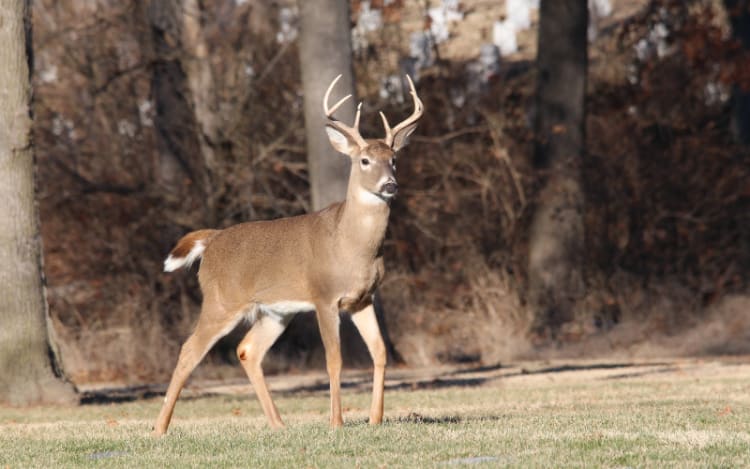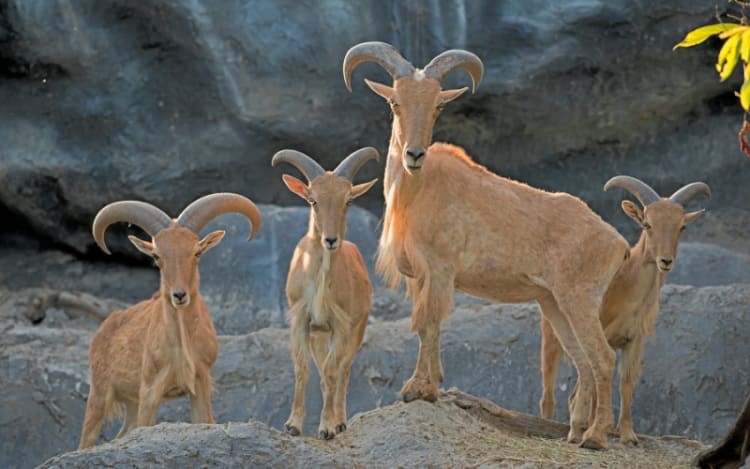10 Hunting Laws You Should Know About
10 Hunting Laws You Should Know About

<
From rugged mountains to sprawling plains, America’s hunting laws are evolving, igniting fiery debates among hunters, conservationists, and lawmakers. As states tackle growing wildlife populations and shifting cultural tides, new regulations are reshaping the pursuit of game—balancing tradition, innovation, and the call of the wild. Dive into the latest changes shaking up the hunting world!
Florida’s Bear Hunt Sparks Controversy with Protest Tactic

In Florida, a heated debate is brewing over the state’s decision to bring back a regulated black bear hunt for the first time since 2015. The Florida Fish and Wildlife Conservation Commission (FWC) has given preliminary approval for a hunting season, citing the need to manage the growing black bear population and reduce human-bear conflicts. However, opponents of the hunt are fighting back with a bold and unconventional strategy: flooding the bear tag lottery to block legitimate hunters from participating. This tactic has ignited a firestorm of controversy, raising questions about the balance between wildlife management, constitutional rights, and ethical protest. Read more.
Should Wildlife Tags Be Sold to the Highest Bidder?

In Wyoming, a heated debate is brewing over a proposal that could change the way hunting tags are handled, stirring up strong feelings among hunters, landowners, and wildlife advocates. The idea, which was brought back to life during a legislative committee meeting in 2025, would allow landowners with large properties to sell their hunting tags on the open market. This isn’t the first time the concept has been floated, but after being rejected earlier in the year, it’s gaining traction again, and it’s got people talking about what it means for the future of hunting and wildlife in the state. Read more.
Minnesota’s Deer Hunting Rules Get a Major Overhaul with Shotgun Zone Repeal

In a move that’s got hunters across Minnesota buzzing, the state’s legislature is set to finalize a significant change to deer hunting regulations. The Environment Omnibus bill, which includes a provision to eliminate the state’s long-standing shotgun-only hunting zones, is slated for a special session on June 9, 2025. This decision marks the end of an era for a rule that’s been in place for over eight decades, and it’s a change that many outdoorsmen have been eagerly awaiting. Read more.
Court Backs Michigan’s Coyote Hunting Ban

In a decision that’s stirred up plenty of debate, an Ingham County Circuit Court judge upheld Michigan’s shortened coyote hunting season, siding with state regulators who aimed to protect newborn coyote pups. The ruling, handed down this week, has left some hunters frustrated but marks a win for the Michigan Natural Resources Commission’s effort to balance wildlife management with conservation concerns. Read more.
Connecticut’s New Sunday Hunting Law

In a historic move, Connecticut lawmakers have lifted a long-standing restriction, allowing hunting on Sundays for the first time in the state’s history. The decision, passed through House Bill 7231, marks the end of one of the last "blue laws" that once limited activities on Sundays. With a strong 32-4 vote in the Senate and a 101-45 approval in the House, the legislation, known as An Act Authorizing Sunday Hunting on Private Lands, is now headed to Governor Ned Lamont’s desk for final approval. For many in Connecticut who cherish time spent in the outdoors, this change is a long-awaited victory. Read more.
Tennessee’s New Deer Baiting Law Stirs Debate

In a move that’s got hunters across Tennessee talking, the state passed a new law on May 9, 2025, legalizing deer baiting on private property with a catch—a special “deer bait privilege license.” This change, driven by House Bill 938, is shaking things up for middle-aged and older hunters who’ve spent years tracking whitetails the old-fashioned way. The law, set to kick in on July 1, 2025, brings both new opportunities and plenty of controversy, as it tries to balance hunting freedoms, wildlife health, and state oversight. Read more.
Oklahoma Takes a Stand Against Firearm Industry Bias

In a bold move to protect the rights of the firearm industry, Oklahoma Governor Kevin Stitt recently put pen to paper, signing the Firearm Industry Non-Discrimination (FIND) Act into law. This new legislation, known as SB 500, is a game-changer for businesses tied to firearms in the Sooner State. It sends a clear message: Oklahoma won’t tolerate discriminatory practices from banks, online platforms, or any corporation looking to do business with the state. For middle-aged men across America who value their Second Amendment rights, enjoy hunting, or simply appreciate the freedom to engage in lawful commerce, this law is a significant step toward fairness in an industry often unfairly targeted. Read more.
Utah’s New Cougar Law: Balancing Wildlife and Livelihoods

In a bold move to tackle rising cougar populations and protect both livestock and wildlife, Utah has opened the door to year-round cougar hunting. Governor Spencer Cox recently signed House Bill 469 into law, a decision that’s stirring conversation among hunters, farmers, and wildlife enthusiasts across the state. This new legislation, effective May 3, 2023, simplifies hunting rules and gives Utahns more tools to manage the growing number of mountain lions—also known as cougars or pumas—roaming the state’s rugged landscapes. Read more.
Louisiana’s Game-Changing FireStick Approval for 2025

Louisiana’s hunting community is buzzing with excitement as the state has given the green light to a revolutionary piece of hunting technology: the Federal FireStick system. For middle-aged hunters across America who cherish the thrill of the primitive firearms season, this decision by the Louisiana Wildlife and Fisheries Commission marks a significant shift in how they can approach their hunts starting in the fall of 2025. The FireStick, a modern innovation in muzzleloader technology, is now legal for use during Louisiana’s primitive firearms season, offering hunters a safer, more reliable, and user-friendly way to enjoy their time in the field. Read more.
Texas Approves Helicopter Hunting To Save Ecosystems

In a bold move to protect its fragile ecosystems, Texas has opened the door to a new wildlife management strategy: helicopter hunting of invasive aoudad sheep. This recent decision by Texas lawmakers has sparked conversations across the state, blending the thrill of aerial pursuits with the urgent need to preserve native species and safeguard local economies. By allowing hunters to target aoudad sheep from the air, Texas is addressing a growing ecological crisis that has been decades in the making, one that threatens the delicate balance of its desert and mountain landscapes. Read more.
More Galleries
